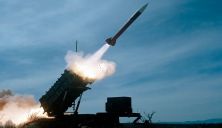Government offices in Iran have either closed or shifted to reduced hours, while schools and colleges transitioned to online learning as the country grapples with an energy crisis.
According to The New York Times, highways and shopping malls have been plunged into darkness, and industrial facilities have been left without power, causing near-total production halts.
Despite possessing some of the world’s largest reserves of natural gas and crude oil, Iran is experiencing a full-scale energy crisis due to years of sanctions, mismanagement, aging infrastructure, wasteful consumption, and targeted attacks by Israel.
While Iran has long struggled with infrastructure issues, the situation has now reached a breaking point. Last week, much of the country effectively shut down to conserve energy. Ordinary citizens expressed frustration, and industry leaders warned that the related economic damages amount to tens of billions of dollars.
Officials reported a daily natural gas deficit of about 350 million cubic meters. With temperatures dropping and demand surging, authorities were forced to take drastic measures to ration gas.
Faced with two tough choices—cut gas supplies to residential areas or stop supplying power plants that generate electricity—the government chose the latter. Cutting residential gas supplies would have posed significant safety risks and deprived millions of Iranians of their primary source of heating.
As of December 20, 17 power plants had been completely shut down, with the remaining ones operating only partially. The state energy company, Tavanir, has warned of widespread electricity outages that could last for several days or even weeks.
This energy crisis has paralyzed industries and disrupted daily life, leaving millions in the cold and dark. The mounting frustration among citizens and the economic toll on industries underscore the severity of the crisis. Iran’s aging infrastructure and years of strained international relations have created vulnerabilities that are now being fully realized as winter intensifies.
Without significant reforms and effective crisis management, the situation could worsen, exacerbating both domestic unrest and the country’s already fragile economy.













